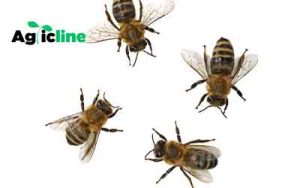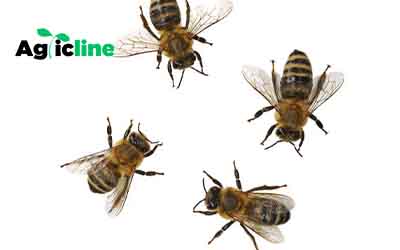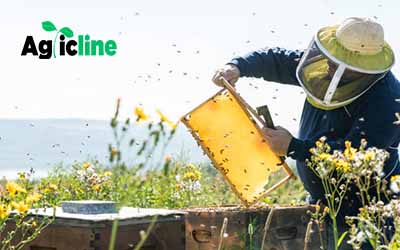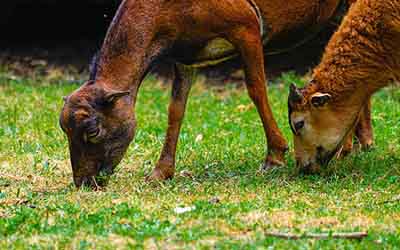Beekeeping is also known as apiculture, it is the practice of raising and maintaining colonies of bees, primarily for the production of honey and other valuable bee-derived products such as beeswax, propolis, and royal jelly.
I did not only explore the environmental benefits of beekeeping in this blog post but everything you need to know about beekeeping.
This age-old tradition has been an essential part of human agriculture for centuries, dating back to ancient civilizations in Egypt and Mesopotamia.
Beekeeping involves the management of hives, the care of bee populations, and the harvesting of their products.
Throughout history, beekeeping has evolved from a simple endeavor to a highly specialized and sustainable practice.
Modern beekeepers utilize various techniques, equipment, and knowledge to ensure the well-being of their bee colonies while maximizing honey production and other benefits.
It has become not only a source of income for many but also a way to contribute to environmental conservation efforts.
Importance of Bees in Our Ecosystem
Bees are often referred to as nature’s unsung heroes, and their vital role in our ecosystem cannot be overstated.
These industrious insects are not only responsible for producing honey but, more importantly, for their unparalleled pollination services.
Bees play a critical role in the pollination of countless plant species, including many of the fruits, vegetables, nuts, and flowering plants that make up a significant portion of the human diet.
The intricate dance of bee pollinators transferring pollen from one flower to another is what allows plants to produce fruits and seeds.
This process is essential for crop production and the continuation of plant species, making it fundamental to global food security and biodiversity preservation.
Without bees and their pollination services, many of the foods we rely on would become scarce or disappear altogether.
Threats Facing Bees and Beekeeping
- Pesticides and Their Impact
- Habitat Loss and Monoculture Farming
- Climate Change and Its Effects
Pesticides and Their Impact
The continued well-being of bees and the practice of beekeeping face numerous challenges in the modern world.
One of the most pressing threats is the widespread use of pesticides, particularly neonicotinoids, which have been linked to bee population declines. These chemicals, while effective in protecting crops from pests, have unintended consequences for pollinators.
Pesticide residues can contaminate nectar and pollen, leading to harmful effects on bees’ behavior, reproduction, and overall health.
In this section, we will explore the detrimental impact of pesticides on bee populations, their role in colony collapse disorder (CCD), and the efforts made to reduce pesticide exposure in beekeeping.
Habitat Loss and Monoculture Farming
Another significant challenge for bees and beekeepers is the loss of natural habitat and the expansion of monoculture farming.
As human populations grow, the demand for agricultural land increases, often resulting in the conversion of diverse ecosystems into large-scale, single-crop fields.
This shift reduces the availability of wildflowers and forage sources for bees, leading to poor nutrition and reduced resilience in bee populations.
Climate Change and Its Effects
Climate change poses a grave threat to both bees and beekeeping. Rising temperatures, altered precipitation patterns, and extreme weather events can disrupt the delicate balance of ecosystems that bees depend on.
Changes in temperature can affect the timing of flowering plants and disrupt the synchronization between bees and their food sources.
Sustainable Beekeeping Practices for Environmental Conservation
Sustainable beekeeping is a vital approach that not only ensures the well-being of bee colonies but also contributes to environmental conservation.
By adopting ethical and environmentally responsible practices, beekeepers can play a significant role in mitigating the threats faced by bees and our ecosystem.
- Avoiding Synthetic Chemicals
- Organic Beekeeping
- Planting Bee-Friendly Gardens
- Preserving Natural Habitats
- Community Engagement
- Advocating for Bee-Friendly Policies
- Selective Breeding
Environmental Benefits of Sustainable Beekeeping
- Increased Crop Yields: Sustainable beekeepers help bolster local pollinator populations, leading to improved crop pollination. This, in turn, results in higher agricultural yields for various fruits, vegetables, and nuts.
- Diverse Plant Life: By maintaining bee-friendly landscapes, sustainable beekeeping promotes biodiversity and the growth of wildflowers. This diversity benefits not only bees but also other wildlife species that rely on these plants for food and habitat.
- Nutrient Cycling: Bee activity aids in nutrient cycling, enriching the soil with organic matter through the decomposition of dead bees and discarded wax. This enhances soil fertility and supports healthier plant growth.
- Preservation of Natural Habitats: Beekeepers who advocate for habitat preservation and engage in responsible land management contribute to the protection of natural ecosystems. This helps maintain the balance of various plant and animal species.
- Lower Pesticide Use: Sustainable beekeepers employ natural pest control methods and reduce the reliance on synthetic pesticides, decreasing the risk of chemical contamination in the environment.
- Minimal Carbon Footprint: Many sustainable beekeepers adopt eco-friendly hive designs and transportation practices, reducing their carbon footprint. This contributes to a more sustainable and environmentally friendly beekeeping industry.
- Protection of Native Bee Species: Sustainable beekeeping practices can help protect native bee species by providing safe habitats and reducing competition with invasive bee species.
- Preserving Genetic Diversity: Beekeepers committed to sustainable practices often prioritize the conservation of local and indigenous bee genetics, safeguarding these unique populations.
- Carbon Sequestration: Bee-friendly habitats, especially those with a diverse array of plants, contribute to carbon sequestration. This helps mitigate the effects of climate change by reducing atmospheric carbon dioxide levels.
- Climate-Resilient Agriculture: Sustainable beekeeping supports diversified agricultural systems that are more resilient to climate-related challenges, such as erratic weather patterns and shifting flowering seasons.

Concluding remark on the environmental benefits of beekeeping
Beekeeping is more than just a traditional practice for harvesting honey; it is a vital component of our ecosystem and a beacon of hope for environmental conservation.
Bees, with their intricate pollination services, play a pivotal role in global agriculture, biodiversity preservation, and the health of our planet.
Sustainable beekeeping practices not only safeguard the well-being of bee colonies but also promote a greener and more sustainable future for all.
As we face ongoing challenges such as pesticide use, habitat loss, and climate change, the importance of beekeeping and the need for responsible stewardship of these remarkable insects becomes even more apparent.
Recommended
How to Start An Animal farm business in Nigeria



